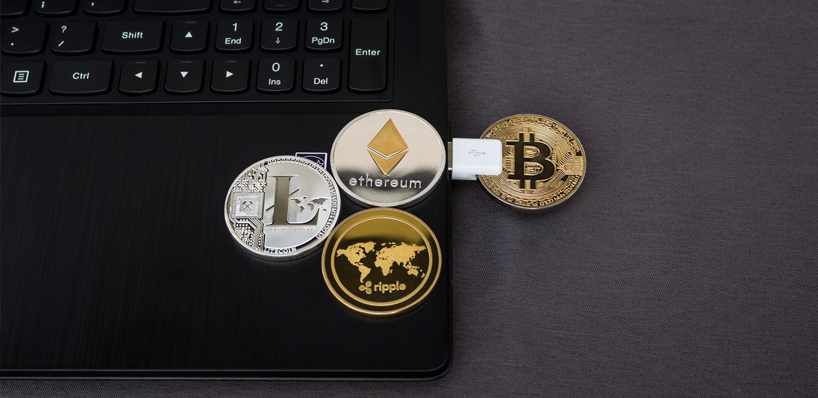Cryptocurrency Wallets and Security
Admin
Aug 4, 2021

A crypto wallet has two keys: a public key, and a private key. A public key is your receiving address that you and others can use to deposit crypto into your wallet. A private key is a unique string of characters representing a digital signature that grants full access to your wallet, including the authorization to send funds. This is similar to a signature used to sign off on a bank cheque– it should never be shared with others, as it would effectively let them “forge” your signature and control your funds.
While there are a variety of crypto wallets available, each person has their own preference. We explain the different types of crypto wallets below:
Desktop
Desktop wallets are installed onto your computer or laptop, with your private keys being safely stored on your hard drive. These wallets are connected to the internet (hot wallet), which naturally makes them less secure than other wallets.
Desktop wallets are popular among those who are new to crypto and only hold a small amount of crypto. Besides security concerns, the only other downside to these types of wallets is that they often require large amounts of space to download, and a fast internet connection to use.
Web
Web wallets, also known as exchange wallets, are constantly online and controlled by a third party. This is usually a crypto exchange. With this type of wallet, your private keys are stored on a server that is not controlled by you. This gives exchanges access to your private keys. This type of wallet allows users easy access to their coins by using either a smartphone or computer.
Unfortunately, these types of wallets are often prone to attacks by hackers as they are easily accessible by using your exchange login details. We therefore encourage the use of two-factor authentication using Google authenticator for added security from this threat. In most cases, however, exchanges offer some sort of protection in the form of insurance in the event that the exchange were to be hacked. Always remember to never share your password with anyone.
Mobile
Mobile wallets are mainly used by people who use crypto on a daily basis to pay for goods and services, or those who make trades via their smartphone. The mobile wallet is in the form of an application on your smartphone, and stores your private keys.
While this type of wallet is simple and easy to use, mobile wallets are also prone to hacking. You can easily lose your funds if the wrong person gets their hands on your device, more so if you have not enabled two-factor authentication (2FA). If you do choose to make use of this type of wallet, only deposit as much crypto as you need into the wallet, and store your larger holdings in a separate hardware or paper wallet for extra security.
It's important to be wary of scam and fake wallet apps. Hackers are constantly developing new apps to try and steal your private keys.
Hardware
A hardware wallet is believed to be the most secure crypto wallet out there, as your crypto is stored offline. This is also known as cold storage. This type of wallet stores your private keys in a secure physical device, that you have possession and control over. This means that there is a much smaller chance of being hacked. These wallets can, however, be quite costly and sometimes more difficult to use than mobile and desktop wallets.
Only purchase a hardware wallet directly from the manufacturer to guarantee an authentic device. Many scammers try to sell malicious hardware wallets to try and steal your funds. Always check that you are visiting the correct URL before making a purchase.
Paper
A paper wallet is simply a sheet of paper containing the code for both your public and private keys. The main advantage of a paper wallet is that your private keys are stored offline, making it completely immune to hacking.
The only disadvantage of a paper wallet is the difficulty of storage that comes with it. Keeping in mind that you are writing extremely important information on a piece of paper, it is advised to keep it in a sealed plastic bag and to store it in a dry, safe place to avoid damage. Some people even go so far as to laminate their paper wallets and store them in safety deposit boxes for the utmost protection.
We hope that after reading this, you are able to make a decision as to which wallet will best suit your needs. Always do your own research and make informed decisions.
Start your cryptocurrency journey with MEX Digital. Remember, proper diligence and sound judgement should be used in evaluating the risks associated with these activities.
Trading cryptocurrency carries significant risk and losses can exceed deposits. Refer to our Terms and Conditions and disclosure material.




